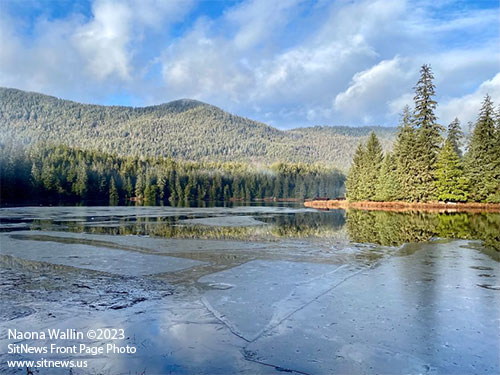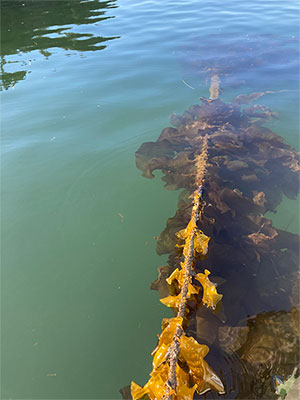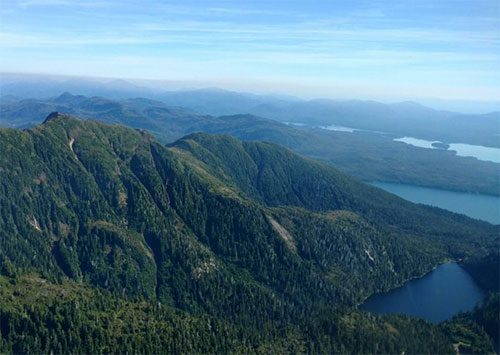











 Contact Contact 
 Webmail
Letters Webmail
Letters
 News Tips News Tips
 Copyright Info Copyright Info
 Archives Archives
Quick News
Search
 Alaska Alaska
 Ketchikan Ketchikan
 SE Alaska SE Alaska
Columns
- Articles
 Dave Kiffer Dave Kiffer
 Money Matters Money Matters
Historical
Ketchikan
 June Allen June Allen
 Dave
Kiffer Dave
Kiffer
 Louise
B. Harrington Louise
B. Harrington
Sports
 Ketchikan Links Ketchikan Links
Public Records
 FAA Accident Reports FAA Accident Reports
 NTSB
Accident Reports NTSB
Accident Reports
 Court Calendar Court Calendar
 Recent Filings & Case Dispositions Recent Filings & Case Dispositions
 Court Records Search Court Records Search
 Sex Offender Reg. Sex Offender Reg.
 Public Notices Public Notices
 Alaska Recall Alerts Alaska Recall Alerts
 Recalls.gov Recalls.gov
 AST Daily Dispatch AST Daily Dispatch
 KTN
Police Reports KTN
Police Reports
 Juneau Police Reports Juneau Police Reports
Weather,
Webcams
 Today's
Forecast Today's
Forecast
 KTN
Weather Data KTN
Weather Data
 AK
Weather Map AK
Weather Map
 AK Weathercams AK Weathercams
 AK Earthquakes AK Earthquakes

|

Sunday
January 29, 2023

Ward Lake
SitNews Front Page Photo By NAONA WALLIN©2023
To have your photo(s) featured on the front page,
email your photo(s) to editor@sitnews.us |
|
AMHS: Historic $285 Million in Infrastructure Funding to Aid Alaska Marine Highway’s Operations, Vessel Acquisitions & Shore side Infrastructure Posted & Edited By MARY KAUFFMAN - Alaskan communities that depend on ferry service to connect with other parts of the state will see significant improvement thanks to increased funding of the Alaska Marine Highway announced on January 26th.
This funding is said will help Alaskans be better able to access jobs, schools and healthcare. Ferry service remains critical for those living in small towns and Alaskan Villages along the coast.
“For so many in Alaska, the ferry remains their only access to opportunity,” said Federal Transit Administrator Nuria Fernandez. “Every American should have a chance at a better job, an easy way to visit family, access to healthcare and a path toward a better life. Thanks to President Biden’s Bipartisan Infrastructure Law, we are investing in passenger ferries all over Alaska that will provide those opportunities while we help reduce our impact on the beautiful climate of that great state.”
Quoting a news release from the U.S. Dept. of Transportation, the grants to Alaska’s Department of Transportation and Public Utilities, are part of a total of $384.4 million in federal funding nationwide from President Biden’s Bipartisan Infrastructure Law to expand and improve the nation’s ferry service in communities across the country, as well as accelerate the transition to zero emission transportation. This funding will benefit millions of Americans – from Alaska to Michigan to Maryland – who depend on coastal waters, rivers, bays, and other bodies of water to connect to their communities.
According to the U.S. Dept of Transportation's announcement, the Alaska Department of Transportation and Public Facilities was chosen to receive funding for six projects, including: (For more information and detailes, scroll down.)
- $46.2 million to build an electric ferry that will improve essential transportation to rural port communities while reducing emissions and improving the sustainability of the Alaska ferry system.
- Nearly $68.5 million to replace a nearly 60-year-old ferry with a new diesel-electric ship. The new vessel will serve rural southwest Alaska, improving service reliability, reducing greenhouse gas emissions, and preserving a vital transit lifeline.
- Nearly $8.6 million to plan for the replacement of aging ferries with diesel-electric hybrid vessels and develop the functional design of a new vessel.
- $44.8 million to operate the Alaska Marine Highway System, which runs 3,500 miles and serves 35 Alaskan communities that face low transportation access and high transportation costs.
- Nearly $72.1 million to modernize four, ships on the Alaska Marine Highway, ensuring continued service reliability, and continued quality of transit services.
- Nearly $45.5 million to upgrade the dock infrastructure in five rural Alaskan communities. These upgrades will allow ferries to continue to service three small, disadvantaged, rural communities and two rural hub communities, including replacing 40-year-old infrastructure at one of the most active ferry terminals: the Auke Ferry Terminal. The upgrades will also allow the facilities to accommodate additional ferries, allowing for uninterrupted service moving forward.
The funding, made available through three Federal Transit (FTA) competitive grant programs, will boost ferry service in rural areas, modernize urban ferry systems, and lower emissions by speeding adoption of zero-emission technology.
The Federal Transit Administration is awarding more than $285 million of investments to improve the reliability and service of Alaska’s ferry system, which serves more than 30 communities across 3,500 miles of coastline.
The funding, all awarded to the Alaska Marine Highway System, is designated to replacing an aging vessel, upgrading ferry dock infrastructure in rural communities, modernizing four vessels, procuring an electric ferry, designing a new mainliner vessel, and for generating sustainable operations.
This landmark funding was made possible by H.R. 3684, the Infrastructure Investment and Jobs Act (IIJA), in which Senator Lisa Murkowski (R-AK) played a lead role writing and negotiating for Alaska. These awards are the first of the IIJA’s newly established Ferry Service for Rural Communities Program and the Electric or Low Emitting Ferry Pilot Program. Additional funding grant funding from these programs will be available to the AMHS in fiscal years 24, 25 and 26.
U.S. Senator Murkowski said, “Having grown up in coastal communities that rely on the Alaska Marine Highway System, I’ve always understood the importance of Alaska’s ferry system. That’s why it was one of my top priorities when I helped craft the bipartisan infrastructure law—one of the most consequential legislative efforts I’ve work on during my time in the Senate. I’m proud to have led the charge on this historic investment to upgrade our aging ferry fleet and hopefully restore connections throughout our coastal communities—specifically through the Ferry Service for Rural Communities program I created with rural Alaskans in mind.”
Murkowski said, “Thanks to the infrastructure law, the state will receive over a quarter of a billion dollars to ensure that this vital mode of transportation can continue. Whether it’s modernizing current vessels, upgrading dock infrastructure in rural communities, to investing in sustainable transportation—I trust the State will capitalize on the opportunities of these grant awards for the betterment of Alaskans.” - More...
Sunday - January 29, 2023 |
|
Southeast Alaska: Tongass Roadless Rule Reinstated; Murkowski, Sullivan: Tongass is a National Forest, Not a Political Football Posted and Edited By MARY KAUFFMAN - The U.S. Department of Agriculture (USDA) last week finalized protections for the Tongass National Forest in Alaska, the world’s largest intact temperate rainforest. USDA’s final rule, announced January 25th, repeals the 2020 Alaska Roadless Rule and restores longstanding roadless protections to 9.37 million acres of roadless areas that support the ecological, economic and cultural values of Southeastern Alaska.
On his first day in office, President Biden committed to reviewing rules – such as the 2020 Alaska Roadless Rule – that may conflict with important national objectives including protecting the environment. This action is among a series of steps the Biden-Harris Administration has taken to conserve and restore some of America’s most cherished lands and waters, many of which are sacred to Tribal Nations.
“As our nation’s largest national forest and the largest intact temperate rainforest in the world, the Tongass National Forest is key to conserving biodiversity and addressing the climate crisis,” said Agriculture Secretary Tom Vilsack. “Restoring roadless protections listens to the voices of Tribal Nations and the people of Southeast Alaska while recognizing the importance of fishing and tourism to the region’s economy.”
At 16.7 million acres, the Tongass National Forest represents the largest intact tract of coastal temperate rainforest on earth and is considered critical for carbon sequestration and carbon storage to help mitigate climate change. America’s forests are a key climate solution, absorbing carbon dioxide equivalent to more than 10% of U.S. annual greenhouse gas emissions.
According to the U.S. Dept of Agriculture, this final rule is based on the multiple ecological, social, cultural, and economic values supported by roadless areas on the Tongass, and follows months of engagement with Tribes, rural communities, and partners. The Forest Service received about 112,000 comment documents from individuals and organizations during the public comment period between November 2021 and January 2022 -- the majority of which were in favor of restoring roadless protections. The agency reviewed, analyzed and applied this input, alongside the input received during the 2020 rulemaking, to inform USDA’s final decision. USDA also consulted with Southeast Alaska Tribal Nations.
Repealing the 2020 Alaska Roadless Rule, which exempted the Tongass from roadless protections, will return the inventoried roadless areas of the forest to management under the 2001 Roadless Rule, which prohibits road construction, reconstruction, and timber harvest in inventoried roadless areas, with limited exceptions. USDA determined that the underlying goals and purposes of the 2001 Roadless Rule continue to be a critical part of conserving the many resources of the Tongass, especially when it comes to the values that roadless areas represent for local, rural communities, Alaska Native peoples, and the economy of Southeast Alaska.
“[Wednesday's] announcement reflects our continued focus on listening to Tribal Nations and people in Southeast Alaska,” said USDA Under Secretary for Natural Resources & Environment (NRE) Dr. Homer Wilkes. “Protecting the Tongass will support watershed protection, climate benefits, and ecosystem health and protect areas important for jobs and community well-being – and it is directly responsive to input from Tribal Nations.”
U.S. Senator Lisa Murkowski (R-AK) said, “The Roadless Rule should never have applied to the Tongass, and the Biden administration’s decision to reinstate it is federal paternalism at its worst. Roughly 80 percent of the Tongass is already protected through existing law, land use designations, and the forest planning process, and there is no threat of large-scale development from timber harvesting or any other activity.”
Murkowski said, “With this decision, the Biden administration is turning the Tongass into a political football, where access changes with each new President and creates whiplash for those who might want to invest or build in Southeast Alaska. We should see this for what it is: a regulation in spite of reality that will only serve to make it take longer, cost more, or outright impossible to develop the limited infrastructure - including renewable energy - necessary for a sustainable regional economy.”
U.S. Senator Dan Sullivan (R-AK) said, “The Biden Administration has now unleashed 42 executive orders or actions targeting Alaska and the economic well-being of our citizens. No other state in the Union is getting such targeted and unwanted attention from the Biden administration. I have repeatedly called on President Biden for a ceasefire in his war on Alaska’s working families, but to no avail,”
Sullivan said, “Alaskans in Southeast - like any Americans - have a right to connect their communities, sustain local economies, build renewable energy projects, and responsibly harvest resources. But the Forest Service’s return to the overly-burdensome 2001 Roadless Rule totally undermines all of those. My message to hard-working Alaskans who are being crushed and utterly disregarded by this Administration: I will fight this and other Biden Administration anti-Alaska actions with everything in my power.”
“This decision is a huge loss for Alaskans,” said Alaska Governor Mike Dunleavy. “It’s yet another way the Biden administration is singling out Alaska. Alaskans deserve access to the resources that the Tongass provides – jobs, renewable energy resources, and tourism, not a government plan that treats human beings within a working forest like an invasive species.”
“This unfortunate decision is a blow to the economic and socioeconomic development of Southeast Alaska. It marks another bitter chapter in this long-running saga, once more forcing the State and its citizens to pay the costs of near-absolute preservation. It denies them the most basic and fundamental developments of society, which are taken for granted in nearly every other part of the country.” said Alaska Attorney General Treg Taylor.
“Alaska’s communities and our regional needs are vastly different than the rest of the nation, and this should continue to be recognized though a common-sense management approach in the Tongass National Forest,” said DNR Deputy Commissioner Brent Goodrum. “The State’s unique and targeted exemption to the sweeping national Roadless Rule was a successful example of public policy allowing appropriate access in a small fraction of the immense Tongass. Continued access would have enhanced subsistence, energy security, recreation, transportation, resource development, and public safety in a multiple-use forest for the direct benefit of the people of Southeast Alaska.”
However, there were many who welcomed the reinstatement of the Tongass Roadless Rule.
Southeast Tribal Leaders from the Organized Village of Kake, the Organized Village of Kasaan, Ketchikan Indian Community, Skagway Traditional Council, the Organized Village of Saxman, the Hoonah Indian Association, the Craig Tribal Association and the Central Council of Tlingit and Haida Indian Tribes of Alaska also commented on the reinstatement of Tongass Roadless Rule. - More...
Sunday - January 29, 2023
|
|
Ketchikan: 2023 Sam Pitcher Memorial Scholarship Recipients Announced - The Sam Pitcher Memorial Scholarship Fund announced that three students have been selected to receive 2023 Sam Pitcher Music Scholarships. Clyde Lamon, Tristan Lemerond, and Torran Urquhart will each receive a $1,000 scholarship. All three are students at Schoenbar Middle School and all plan to use their scholarship to attend Sitka Fine Arts Camp.
Seventh grader Clyde Lamon plays both the electric guitar and the clarinet. He plays guitar in the Schoenbar Jazz Band and clarinet in the Schoenbar Concert Band. Additionally Clyde has performed in First City Players’ productions and at The Monthly Grind. He is currently taking private lessons from Chazz Gist who praised Clyde’s professional attitude when Gist called on him at the last minute to play guitar with the house band for this year’s Divas and Divos Show. Clyde hopes to continue studying and playing with more experienced musicians which will help him to continue to improve his skills. Clyde is the son of Lindsay and Brian Lamon.
Eighth grader Tristan Lemerond started playing the trumpet just a little over a year ago. Schoenbar music teacher Jamie Karlson states that he has shown great growth during this time and now plays lead trumpet with the Schoenbar Jazz Band. Tristan hopes to continue to be challenged and to improve his skills on the trumpet. Tristan is the son of Anne Marie Mestas and Christopher Lemerond.
Torran Urquhart is also an eighth grader. Torran plays the piano with the Schoenbar Jazz Band and percussion in the Schoenbar Symphonic Band. He hopes to continue to improve his skills, especially his improvisation skills, learn to play different styles of music, and overall become a better pianist. Torran has benefited from private lessons with Austin Hays. He is the son of Frankie and Bill Urquhart.
Scholarships are awarded to these students on the basis of merit, goals, and musicianship. A Ketchikan Area Arts and Humanities Council advisory committee administers the scholarship program. - More...
Sunday - January 29, 2023
Ketchikan: Five new 35’ Gillig diesel buses to KGB fleet - The Ketchikan Gateway Borough Transit Department has added five new 35’ Gillig diesel buses to its fleet. These buses were funded through a grant from Alaska Department of Transportation & Public Facilities which serves as the pass-through entity for Federal Transit Administration Funds. This bus acquisition is the largest single procurement of buses the Borough has made in the history of transit service in Ketchikan.
The new buses have exciting new customer facing technology upgrades which include Infotainment screens and upgraded mobility device securement now, and soon-to-be-launched auto annunciation of stops and stop requests. These improved systems support individuals with visual, hearing, or mobility challenges, as well as riders that are unfamiliar with Ketchikan and the transit system. The new technologies will also enhance safety, improve customer service, and save money by reducing required driver training time.
These buses will play an important role in increasing seasonal frequency and capacity to routes for Borough residents and visitors. This includes 30-minute frequency on routes outside of the City and up to 10-minute frequency during peak hours in the downtown area. This added frequency and capacity will support Borough initiatives including access to affordable housing, workforce housing, economic development, and tourism.
- More...
Sunday - January 29, 2023
|
|
Ketchikan: KIC swears in elected Tribal Council and AHB members; elects new officers -
The Ketchikan Indian Community Tribal Council officially swore in three members to its Tribal Council and two members to its Advisory Health Board (AHB) during a special meeting on Monday night.
Sworn in to the Tribal Council were Lloyd Ruaro, Judy Leask Guthrie, and Gianna SaanuGa Willard, all reelected incumbents. Chas Edwardson, Marcie Fields, Judy Leask-Guthrie, Melissa Johnson, and Lloyd Ruaro, round out the Tribal Council.
Also sworn in was incumbent Advisory Health Board member Amber Williams-Baldwin and newly elected member Kristina Shorey.
After a vote of the Tribal Council, Norman Skan is the new KIC president and Tribal Council chair, with Gloria Burns being elected to serve as vice president. Trixie Bennett was elected as treasurer and Gianna SaanuGa Willard was voted to serve as secretary.
“I am pleased to have been chosen by my fellow Tribal Council members to step into the role of President once again,” said Skan. “I look forward to serving my Tribe in this leadership role and am especially excited that I will be working again with the three reelected incumbents. I believe that our Tribe will benefit from this continuity of leadership.”
President Norm Skan has been an active member of the Tribal Council since 2017, including two term as Tribal President and serving in the roles of vice president, secretary, and treasurer. Skan has served as the chairperson for the Finance, Governance, Veterans, and Enrollment Committees. In addition, in 2016 Skan served as a member of the Advisory Health Board. - More...
Sunday - January 29, 2023
Alaska: Alaska Law Enforcement Seizes Millions of Doses of Fentanyl in 2022; Trooper Led Task Force Made 102 Unique Drug and Alcohol Arrests in 2022 - The Alaska Department of Public Safety’s Statewide Drug Enforcement Unit (SDEU) has released its annual drug report highlighting trends in illegal narcotics trafficking in Alaska. The annual report presented to the Alaska Legislature details reported street prices for illicit drugs, the impressive number of illicit drugs and alcohol seized by the drug investigators, average sentences given to offenders of Alaska’s controlled substances criminal statutes, as well as an overview of the illegal narcotics and illicit alcohol problem in Alaska.
Highlights from 2022 Annual Drug Report:
- In 2022, 26.85 kilograms of fentanyl, which is approximately 13.425 million potentially fatal doses
- In 2022, SDEU made 102 unique drug and alcohol arrests across Alaska.
- From 2021 to 2022, there was a 68 percent increase in methamphetamine seizures and a 77 percent increase in cocaine seizures.
- International drug trafficking organizations (DTOs) continue to gravitate towards Alaska’s lucrative drug market looking to exploit Alaska’s remote areas, high demand, and limited law enforcement resources in remote areas.
“This latest annual report reflects the commitment and tenacity of the dozens of Alaska State Trooper Drug Investigators, as well as our local, state, and federal law enforcement partners to disrupt the ongoing trafficking of illicit and dangerous drugs in Alaska and prevent overdose deaths. To those trafficking dangerous drugs in Alaska, know that sooner or later law enforcement will catch up to you and hold you accountable for your reckless disregard for Alaskan lives,” said Colonel Maurice Hughes, Director of the Alaska State Troopers. - More...
Sunday - January 29, 2023
|
Alaska: Kelp farms could help reduce coastal marine pollution By JEFF RICHARDSON - The water-filtering abilities of farmed kelp could help reduce marine pollution in coastal areas, according to a new University of Alaska Fairbanks-led study.

Sugar kelp grows at an experimental farm near Juneau.
Photo by Schery Umanzor |
The paper, published in the January issue of Aquaculture Journal, analyzed carbon and nitrogen levels at two mixed-species kelp farms in southcentral and southeast Alaska during the 2020-21 growing season. Tissue and seawater samples showed that seaweed species may have different capabilities to remove nutrients from their surroundings.
“Some seaweeds are literally like sponges — they suck and suck and never saturate,” said Schery Umanzor, an assistant professor at UAF’s College of Fisheries and Ocean Sciences and the lead author of the study.
“Although carbon and carbon sequestration by kelp received most of the attention, kelp is actually much better at mitigating excessive amounts of nitrogen than carbon,” Umanzor said. “I think that’s a story that’s really underlooked.”
Nitrogen pollution is caused in coastal areas by factors such as urban sewage, domestic water runoff or fisheries waste disposal. It can lead to a variety of potential threats in marine environments, including toxic algae blooms, higher bacterial activity and depleted oxygen levels. Kelp grown in polluted waters shouldn’t be used for food but could still be a promising tool for cleaning such areas. - More...
|
|
Alaska: Study offers new insight on what ancient noses smelled By MARMIAN GRIMES - It sounds a little like Stone Age standup: A Denisovan and a human walk past a bees’ nest heavy with honeycomb. What happens next?
According to a study led by University of Alaska Fairbanks biological anthropologist Kara C. Hoover and Universite Paris-Saclay biochemist Claire de March, the Denisovan, with the species’ greater sensitivity to sweet smells, may have immediately homed in on the scent and beat the human to a high-energy meal.
"This research has allowed us to draw some larger conclusions about the sense of smell in our closest genetic relatives and understand the role that smell played in adapting to new environments and foods during our migrations out of Africa,” said Hoover, a professor in the Department of Anthropology at UAF.
A paper on the research, recently published in iScience, was written by collaborators from UAF, Duke University, Universite Paris-Saclay, Tokyo University of Agriculture and Technology, and the University of Manchester. The study investigated whether humans share a sense of smell with their now-extinct Denisovan and Neanderthal cousins, who left Africa about 750,000 years ago. Contemporary humans left Africa about 65,000 years ago.
To recreate the noses of our extinct genetic relatives and compare them to those of present-day people, the research team used publicly available genome sequences from multiple Neanderthals, one Denisovan and one ancient human. They used data from the 1000 Genomes project to represent modern humans.
They then compared 30 olfactory receptor genes from each group. The team found that 11 of the receptors had some novel mutations present only in extinct lineages. In the largest study of its kind to date, the team created laboratory versions of those 11 olfactory receptors and then exposed them to hundreds of odors at different concentrations.
When the receptors detected an odor, they literally lit up. The speed and brightness of the luminescence told the scientists whether, how soon and to what degree each “nose” could smell the odors. While the receptors could detect the same things as modern humans, they differed in sensitivity to many of the odors.
“We literally reproduced an event that hadn’t happened since the extinction of Denisova and Neanderthal 30,000 years ago: an extinct odorant receptor responding to an odor in cells on a lab bench,” de March said. “This took us closer to understanding how Neanderthal and Denisova perceived and interacted with their olfactory environment.” - More...
Sunday - January 29, 2023
|
DAVE KIFFER: Is it Time for the 'Iron Chair'? - As I age, I look for ways to get active.
Well, that's not quite correct. I am actually looking for ways to get MORE active. I have always been "sorta" active.
"Active" in that I am always doing "something." Work, hobbies and other stuff have always kept me busy. But not "active." At least in the sort of way that involves physical "activities."
I have always been fascinated by those with "active lives." You know, the kind of people that run every day or climb mountains or take vacations around such things as scuba diving or hiking the Appalachian Trail.
That is so not me.
I remain an avid "indoorsperson." - More...
Sunday - January 29, 2023
PHIL KERPEN: BIDEN’S SECOND STUDENT LOAN BAILOUT SCHEME IS EVEN WORSE - President Joe Biden isn’t waiting for the Supreme Court to decide on his last $400 billion student loan bailout before rolling out another, even more costly plan (oral arguments are scheduled for Feb. 28, and it has been blocked by lower courts for now.)
Biden’s new plan to force taxpayers to pay for other people’s college is as legally and morally bankrupt as his old plan – and may prove even more expensive.
The new Biden proposal would force taxpayers to cover the full cost of college, except for nominal monthly payments capped at a maximum of 5 percent of income above 225 percent of the federal poverty level. This year, 225 percent of the federal poverty level is $67,500 for a family of four.
The nominal payments would end after 20 years for undergraduate loans (10 if qualified for the Public Service Loan Forgiveness program, or if they borrowed less than $12,000) and 25 years for graduate loans, with the remaining balance covered by taxpayers. Many borrowers could pay literally zero many months under this plan, forcing taxpayers to cover the full amount of tuition.
An analysis by the liberal Brookings Institution found that 85 percent of student loan borrowers would make reduced payments under this plan, and fully half of all student loan balances would be dumped on taxpayers. - More...
Sunday - January 29, 2023
FINANCIAL FOCUS: Watch out for tax season scams Provided By BEN EDWARDS, AAMS® - It’s that time of year when we do our taxes — but it’s also the same time that tax scammers go to work. What scams should you watch for — and how can you avoid being victimized?
Sadly, the list of scams is pretty long, including demands for payment or requests for “additional information” pertaining to your tax refund, in which the sender asks for your Social Security number and other personal information. These scam emails can look quite official, often incorporating the IRS logo. You might also receive scam text messages containing bogus links claiming to be the IRS website or an online “tool” that can help process your refund faster.
But keep these points in mind:
• The IRS generally won’t contact you by phone and won’t contact you by email, text messages or social media channels to ask for personal or financial information. The IRS begins most correspondence to taxpayers through regular mail delivered by the U.S. Postal Service. - More...
Sunday - January 29, 2023 |
POLITICAL CARTOONS

Political Cartoon: Debt Ceiling
by Guy Parsons©2023, PoliticalCartoons.com
Distributed to subscribers for publication by CagleCartoons.com

Political Cartoon: Top Secret Turducken
by Christopher Weyant©2023, The Boston Globe, MA
Distributed to subscribers for publication by CagleCartoons.com

Political Cartoon: National Archives Classified Documents Dropbox
by R.J. Matson©2023, Portland, ME
Distributed to subscribers for publication by CagleCartoons.com

Political Cartoon: More Classified Documents Found
by R.J. Matson©2023, CQ Roll Call
Distributed to subscribers for publication by CagleCartoons.com |
Alaska Ferry System Cancellation of Prince Rupert Ferry Route Critique By Mary Lynne Dahl - The numerous problems facing our Alaska Marine Highway System (AMHS) are on the verge of causing this entire transportation system for Southeast Alaska to collapse. The primary reasons for this imminent collapse are budgetary, management and planning mistakes that have been tolerated and even promoted by state government for many years. The subject of this critique is to provide an overview of the problems of the Alaska Highway System in general but more specifically the extreme difficulties resulting from the elimination of regular service to the port of Prince Rupert, BC in particular. Let’s look at some historical facts to get perspective on these issues.
First, the Marine Highway System was created with a stated mission to “provide safe, reliable and efficient transportation of people, goods, and vehicles among Alaska communities, Canada, and the “lower 48” while providing opportunities to develop and maintain reasonable standards of living and high quality of life, including social, educational and health needs”, according to its annual published reports. AMHS is failing miserably in this mission because the system has been neglected, mismanaged and underfunded for years. As I have said publicly several times, it is being beaten to death.
The AMHS did not originally depend on oil income or revenue from the Alaska Permanent Fund to function. It was created long before there was any oil income or Perm Fund money. It was started with a bond backed by the State of Alaska and paid for with income taxes paid by the residents of the state and corporations doing business in the state. It had a solid, predictable source of funding outside of the political football of the Perm Fund or oil/gas revenue.
AMHS was founded in 1959 with an $18 million bond issued by the State of Alaska to forward fund the system start-up. By 1963 AMHS had operational ferries and routes. The first port of call to the mainland was Prince Rupert, British Columbia with several other ports of call on the Inside Passage, connecting coastal communities. At that time, the stated goal was to promote transportation and development in the affected communities, eventually including tourism as well.
Prince Rupert was the primary port for access to the mainland from 1963 to 1967, at which time the primary mainland port moved to Seattle. In 1989 that was moved to Bellingham, Washington from Seattle, with a 20-year lease for AMHS boats to dock in Bellingham. Prince Rupert was retained as a port of call but it was no longer the primary port for access to the mainland. This was, in my opinion, a mistake. Locals preferred the Prince Rupert port for their trips to the mainland, because it was cheaper, faster and a scenic drive after docking in Prince Rupert, for those going further. That is still true today.
It is 90 nautical miles/7 hours from Ketchikan to Prince Rupert, BC and 595 nautical miles/40 hours from Ketchikan to Bellingham, Washington, making fuel costs 6 ½ times more expensive (650%) for the Bellingham route than the Prince Rupert route. According to the 2019 Annual Report published by AMHS, fuel/oil costs represents 52% of all operating expenses in the latest available data (2014 data).
Bellingham passenger volume has declined sharply since 2013. Since then, passengers disembarking in Bellingham has declined every year, ending with a decline of 19% in 2019. This is in spite of continuation of Bellingham port calls 3-4 times per month from Ketchikan and back up the scenic beauty of the Inside Passage. By comparison, passengers disembarking in Prince Rupert is down sharply as well, but that is a direct result of a reduction in port calls to Prince Rupert from 146 in 2010 to only 55 in 2019, which is 91 fewer port calls over 9 years, a 62 % decline in trips to Prince Rupert.
According to the annual AMHS report, annual total Southeast passenger volume has declined, every year since 2014 after the current governor took office, by 37%. This is as a direct result of the veto power of the governor and the budgets he offered, with less funding, fewer boats, boats in unplanned lay-up for repairs resulting from lack of needed maintenance and fewer sailings to specific ports of call, most notably to/from Prince Rupert. The declines each year since 2014 are staggering and real. - More...
Sunday - January 29, 2023
Email your opinions and letters for publication to editor@sitnews.us
|
Articles &
photographs that appear in SitNews may be protected by copyright
and may not be reprinted or redistributed without written permission
from and payment of required fees to the proper sources.
E-mail your news &
photos to editor@sitnews.us
Photographers choosing to submit photographs for publication to SitNews are in doing so, granting their permission for publication and for archiving. SitNews does not sell photographs. All requests for purchasing a photograph will be emailed to the photographer.
|
|











|
|
![]() Contact
Contact ![]()
![]() Webmail
Letters
Webmail
Letters![]()
![]() News Tips
News Tips![]()
![]() Copyright Info
Copyright Info![]() Archives
Archives![]() Alaska
Alaska![]() Ketchikan
Ketchikan![]() SE Alaska
SE Alaska![]() Dave Kiffer
Dave Kiffer![]() Money Matters
Money Matters ![]() June Allen
June Allen![]() Dave
Kiffer
Dave
Kiffer![]() Louise
B. Harrington
Louise
B. Harrington ![]() Ketchikan Links
Ketchikan Links![]() FAA Accident Reports
FAA Accident Reports ![]() NTSB
Accident Reports
NTSB
Accident Reports![]() Court Calendar
Court Calendar![]() Recent Filings & Case Dispositions
Recent Filings & Case Dispositions ![]() Court Records Search
Court Records Search![]() Sex Offender Reg.
Sex Offender Reg.![]() Public Notices
Public Notices![]() Alaska Recall Alerts
Alaska Recall Alerts![]() Recalls.gov
Recalls.gov![]() AST Daily Dispatch
AST Daily Dispatch![]() KTN
Police Reports
KTN
Police Reports![]() Juneau Police Reports
Juneau Police Reports ![]() Today's
Forecast
Today's
Forecast![]() KTN
Weather Data
KTN
Weather Data![]() AK
Weather Map
AK
Weather Map![]() AK Weathercams
AK Weathercams![]() AK Earthquakes
AK Earthquakes




































